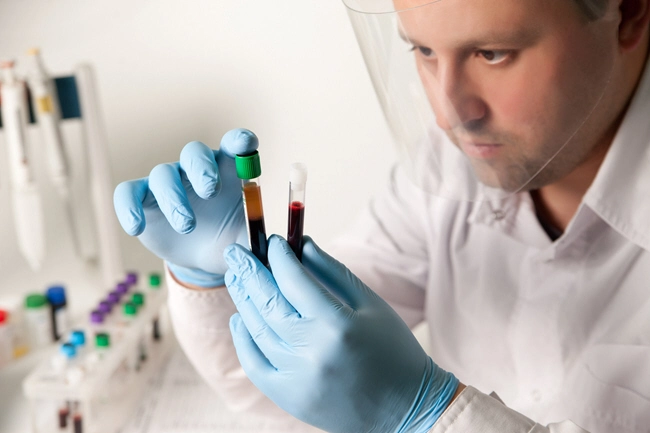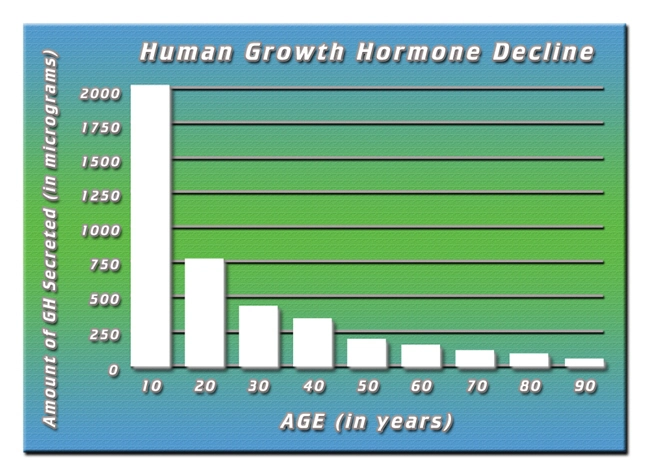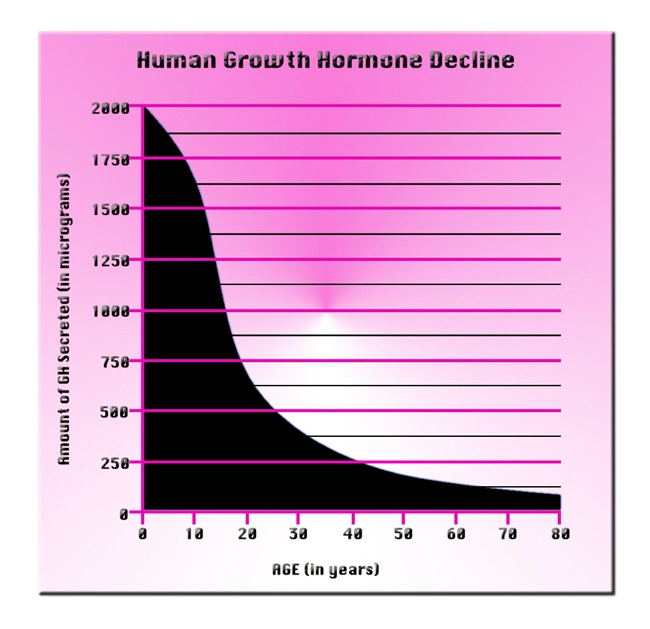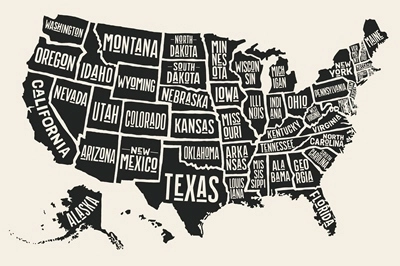
Video Link: https://vimeo.com/288018730
Video Download: Click Here To Download Video
Video Stream: Click Here To Stream Video
The Importance of Coffee
At our clinics, we specialize in several methods of hormone replacements: Human Growth Hormone (HGH) Replacement Therapy; Testosterone Replacement Therapy (TRT ), and Sermorelin Therapy. But in addition to hormone replacement, we also provide detailed nutritional advice to ensure we are providing our clients with the latest developments and research into the exciting world of nutrition. And that includes a popular wake-up morning beverage: coffee.
Our love affair with coffee has a long history. One of Napoleon's diplomats Talleyrand commented that coffee “should be hot as hell, black as the devil, pure as an angel, sweet as love.”
 Bach composed an entire cantata praising coffee, writers dealing with writer's block, and students pulling all-nighter's for exams depending on it, and, according to legend, a Pope gave his blessings to the black stuff.
Bach composed an entire cantata praising coffee, writers dealing with writer's block, and students pulling all-nighter's for exams depending on it, and, according to legend, a Pope gave his blessings to the black stuff.
In one of the most famous retorts known, Lady Astor once wisecracked that if she were Winston Churchill's wife, she'd poison his coffee. Churchill's response was priceless: "If I were married to you, I'd drink it."
Coffee is omnipresent, spanning across history and throughout all four corners of the globe. And more and more, science is proving its real benefits.
University of Harvard scientists has conducted numerous studies on coffee for decades. Recently, researchers declared they had discovered six new human genes linked to the brew and verified the existence of two others.
The Nurses' Health Study concluded that coffee provides protection from type 2 diabetes and cardiovascular disease. Research continues to follow up on earlier findings that it protects against Parkinson's disease.
Harvard's research is just a fraction of an emerging picture of coffee as a potentially potent Elixir against a plethora of ailments, from cancer to cavities.
Sanjiv Chopra, a professor of medicine at Harvard Medical School and Harvard-affiliated Beth Israel Deaconess Medical Center, has been so enthralled he's become something of a coffee proselytizer. A well-known author, Chopra included a chapter on coffee in his 2010 book, "Live Better, Live Longer."
Chopra initially uncovered the protective effects of coffee when a study found that coffee drinking decreases levels of liver enzymes and guards the liver against cancer and cirrhosis. He questioned students, residents, and fellows on the liver unit to ask patients about their coffee habits, and the results were astounding: none of the patients with liver problems drank coffee...not a single one!
Chopra practices what he preaches, drinking several cups a day, and motivates others to do the same. Other researchers are more cautious in their findings, but they're sufficiently convinced enough to continue investigations into the benefits.
Alberto Ascherio, a professor of epidemiology and nutrition at the Harvard T.H. Chan School of Public Health and a professor of medicine at HMS, has studied coffee's potential anti-Parkinson's effects
That research concluded that several cups of coffee daily slashed disease risk almost in half compared with little or no caffeine.
Professor of Nutrition and Epidemiology and Professor of Medicine Frank Hu, who heads the diabetes section of the Nurses' Health Study, is interested in whether coffee drinking affects total mortality.
"I'm not a huge coffee drinker, two to three cups a day," Hu said. "[But] I like it and, thinking about the extra benefits, that's comforting."
 Recently, a Harvard team led by then research associate Marilyn Cornelis (now an assistant professor at Northwestern University) uncovered coffee's impact on the human genome, discovering six new genes related to coffee consumption and reconfirming two others found earlier.
Recently, a Harvard team led by then research associate Marilyn Cornelis (now an assistant professor at Northwestern University) uncovered coffee's impact on the human genome, discovering six new genes related to coffee consumption and reconfirming two others found earlier.
The six genes included two linked to metabolism, two similar to coffee's psychoactive effects, and two whose precise purpose in coffee consumption is unknown, but which are connected to lipid and glucose metabolism.
Daniel Chasman, an associate professor of medicine at HMS and associate geneticist at Harvard-affiliated Brigham and Women's Hospital, who assisted Cornelis in the study, said caffeine consumption habits are highly heritable and the genes they discovered may explain about 7 per cent of the heritability.
That's a significant amount, he insisted, considering how powerful an influence culture plays on coffee consumption.
Though the links between coffee and better health have become substantially more apparent, what exactly delivers the benefit remains uncertain. Caffeine alone does not explain the effects. Why? Because some of the health advantages are seen with decaf, which has caused researchers to turn their attention to the multiple other active compounds — including antioxidants such as chlorogenic acid — in your morning cup of Joe.
"Coffee is a complex beverage. It's tough to pinpoint which component of coffee is responsible for the benefit," Hu said. "There are numerous bioactive compounds."
Other highlights from Harvard research include:
- A 2005 study looking at concerns that excess coffee raised blood pressure found no connection between higher blood pressure and coffee and found some evidence that it improved blood pressure.
- Regular coffee drinking was related in a 2011 Harvard study to diminish the risk of a deadly form of prostate cancer.
- A 2011 study found that drinking four or more cups a day lowered the rate of depression among women.
- A 2012 study linked three cups a day to a 20 per cent decreased risk of basal cell carcinoma.
- A 2013 Harvard study connected coffee drinking to a lower risk of suicide.
- A 2013 Harvard analysis of 36 studies that included more than a million people found that heavy coffee drinking did not boost the risk of cardiovascular disease and that three to five cups of coffee daily provided significant protection against heart disease.
- A 2014 Harvard Chan School study determined that increasing coffee consumption by more than a cup a day over four years lowered type 2 diabetes risk by 11 percent.
- The same study showed that those who cut their coffee consumption by more than a cup a day heightened their type 2 diabetes risk by 17 percent.
"That first cup of coffee in the morning is happiness," Chopra said. "It's a real joy."
Contact us for a FREE, no-obligation of the benefits of hormone replacement.
Reference
20+ Good Health Reasons To Drink Coffee
Contact Us Today For A Free Consultation
Dear Patient,
Once you have completing the above contact form, for security purposes and confirmation, please confirm your information by calling us.
Please call now: 1-800-380-5339.
Welcoming You To Our Clinic, Professor Tom Henderson.

- Obese Patients Have a Higher COVID-19 Mortality Risk Than the General Public [Last Updated On: January 24th, 2025] [Originally Added On: August 21st, 2020]
- The Health and Hormone Balancing Qualities of Broccoli [Last Updated On: July 10th, 2024] [Originally Added On: August 27th, 2020]
- What to eat to boost testosterone [Last Updated On: August 13th, 2024] [Originally Added On: December 14th, 2020]
- Breaking a Weight Loss Plateau: How to Reduce Body Fat When Nothing Seems to be Working [Last Updated On: January 20th, 2025] [Originally Added On: February 16th, 2021]
- The Top 25 Most Nourishing and Sustaining Foods to Add to Your Diet Today for Increased Longevity [Last Updated On: January 16th, 2025] [Originally Added On: February 16th, 2021]
- Fight Inflammation and Osteoporosis with Beets! [Last Updated On: January 14th, 2025] [Originally Added On: February 18th, 2021]
- Break a Weight Loss Plateau with Apple Cider Vinegar [Last Updated On: January 14th, 2025] [Originally Added On: February 20th, 2021]
- An Intriguing Look into How Growth Hormone Production and Fasting are Linked [Last Updated On: January 18th, 2025] [Originally Added On: February 21st, 2021]
- Health Reasons for a Vegan Diet [Last Updated On: September 24th, 2024] [Originally Added On: April 2nd, 2021]
- Leafy Greens are Medicine for Your Gut [Last Updated On: August 27th, 2024] [Originally Added On: April 23rd, 2021]
- All Praise to the Spud -- the Delicious, Health-Giving Potato, That Is [Last Updated On: July 11th, 2024] [Originally Added On: June 1st, 2021]
- 16 Cancer-Causing Foods to Avoid [Last Updated On: June 12th, 2024] [Originally Added On: August 12th, 2021]
- Longevity and Anti-Aging -- The Use of Flax Seed Oil [Last Updated On: May 30th, 2024] [Originally Added On: August 17th, 2021]
- Essential Amino Acids Critical to Health and Hormone Balance [Last Updated On: July 5th, 2024] [Originally Added On: October 6th, 2021]
- Growth Hormone and Calcium [Last Updated On: January 11th, 2025] [Originally Added On: October 16th, 2021]
- The Importance of Protein in Weight Loss and Testosterone Production [Last Updated On: January 19th, 2025] [Originally Added On: October 19th, 2021]
- Testosterone, Growth Hormone, and Sugar. [Last Updated On: January 9th, 2025] [Originally Added On: October 19th, 2021]
- Testosterone, Growth Hormone, and Processed Meat [Last Updated On: January 8th, 2025] [Originally Added On: October 19th, 2021]
- Growth Hormone and Intermittent Fasting [Last Updated On: January 7th, 2025] [Originally Added On: October 19th, 2021]
- Growth Hormone and the Importance of Nutrition [Last Updated On: January 7th, 2025] [Originally Added On: October 20th, 2021]
- Growth Hormone Stops Inflammation! [Last Updated On: January 8th, 2025] [Originally Added On: October 20th, 2021]
- Growth Hormone and Sugar Addiction [Last Updated On: January 4th, 2025] [Originally Added On: October 20th, 2021]
- Growth Hormone and Red Meat [Last Updated On: January 5th, 2025] [Originally Added On: October 20th, 2021]
- Boost Growth Hormone with Sleep [Last Updated On: June 11th, 2024] [Originally Added On: October 20th, 2021]
- A Natural Acid Found in Apples Prevents Muscle Loss AKA Sarcopenia [Last Updated On: January 10th, 2025] [Originally Added On: October 20th, 2021]
- Growth Hormone and Organic Foods. [Last Updated On: January 3rd, 2025] [Originally Added On: October 21st, 2021]
- Growth Hormone and Acidosis [Last Updated On: January 5th, 2025] [Originally Added On: October 21st, 2021]
- Growth Hormone Food Choices [Last Updated On: January 2nd, 2025] [Originally Added On: October 21st, 2021]
- Growth Hormone and Cholesterol: the Surprising Link [Last Updated On: January 6th, 2025] [Originally Added On: October 22nd, 2021]
- Growth Hormone and Weight Loss [Last Updated On: January 3rd, 2025] [Originally Added On: October 22nd, 2021]
- Growth Hormone Reduces Inflammation [Last Updated On: January 4th, 2025] [Originally Added On: October 24th, 2021]
- What You Eat Impacts Both Your Sleep AND Your Growth Hormone Production [Last Updated On: January 10th, 2025] [Originally Added On: October 24th, 2021]
- Growth Hormone Lowers Blood Sugar [Last Updated On: January 6th, 2025] [Originally Added On: October 24th, 2021]
- Testosterone and Magnesium [Last Updated On: June 13th, 2024] [Originally Added On: April 28th, 2022]
- The Beneficial Functions of Brown Fat vs. White Fat [Last Updated On: June 17th, 2024] [Originally Added On: May 3rd, 2022]
- MOTS-c Peptide for Weight Loss and Muscle Building [Last Updated On: July 3rd, 2024] [Originally Added On: November 7th, 2022]
- Looking to lose weight? Add this ingredient to meals [Last Updated On: August 24th, 2024] [Originally Added On: December 7th, 2022]
- The many health benefits of black tea [Last Updated On: August 23rd, 2024] [Originally Added On: December 13th, 2022]
- Raw Food Benefits [Last Updated On: August 20th, 2024] [Originally Added On: January 18th, 2023]
- Brain Foods that Work Together with HGH to Improve Mental Sharpness [Last Updated On: February 14th, 2025] [Originally Added On: March 9th, 2024]









